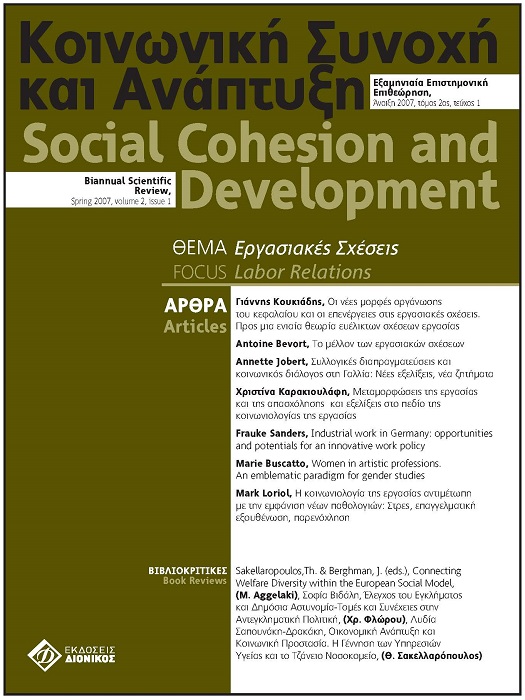New forms of organization of capital and their effects on labor relations. Towards an integrated approach of flexible labor relations

Published:
Apr 13, 2016
Keywords:
Flexibility social dimension flexible collective labor relations partially/fully labor flexibility flexible employer
Abstract
Current reformers of the industrial relations system are faced with a significant challenge; the need to combine the necessary flexibility of companies, while safeguarding workers’ rights. The paper attempts to give an answer to this challenge on the basis of three arguments: firstly through the adjustment of workers’ protection to flexible employment patterns, secondly by claiming a wider definition of the term “employer” and lastly through the establishment of flexible labor law institutions. The author suggests that the law of flexibility is the new law of dependent labor, the latter understood in a wider context.
Article Details
- How to Cite
-
Κουκιάδης Ι. Δ. (2016). New forms of organization of capital and their effects on labor relations. Towards an integrated approach of flexible labor relations. Social Cohesion and Development, 2(1), 5–20. https://doi.org/10.12681/scad.9035
- Section
- Articles

This work is licensed under a Creative Commons Attribution-NonCommercial-ShareAlike 4.0 International License.
Authors who publish with this journal agree to the following terms:
- Authors retain copyright and grant the journal right of first publication with the work simultaneously licensed under a Creative Commons Attribution Non-Commercial License that allows others to share the work with an acknowledgement of the work's authorship and initial publication in this journal.
- Authors are able to enter into separate, additional contractual arrangements for the non-exclusive distribution of the journal's published version of the work (e.g. post it to an institutional repository or publish it in a book), with an acknowledgement of its initial publication in this journal.
- Authors are permitted and encouraged to post their work online (preferably in institutional repositories or on their website) prior to and during the submission process, as it can lead to productive exchanges, as well as earlier and greater citation of published work (See The Effect of Open Access).
Downloads
Download data is not yet available.


